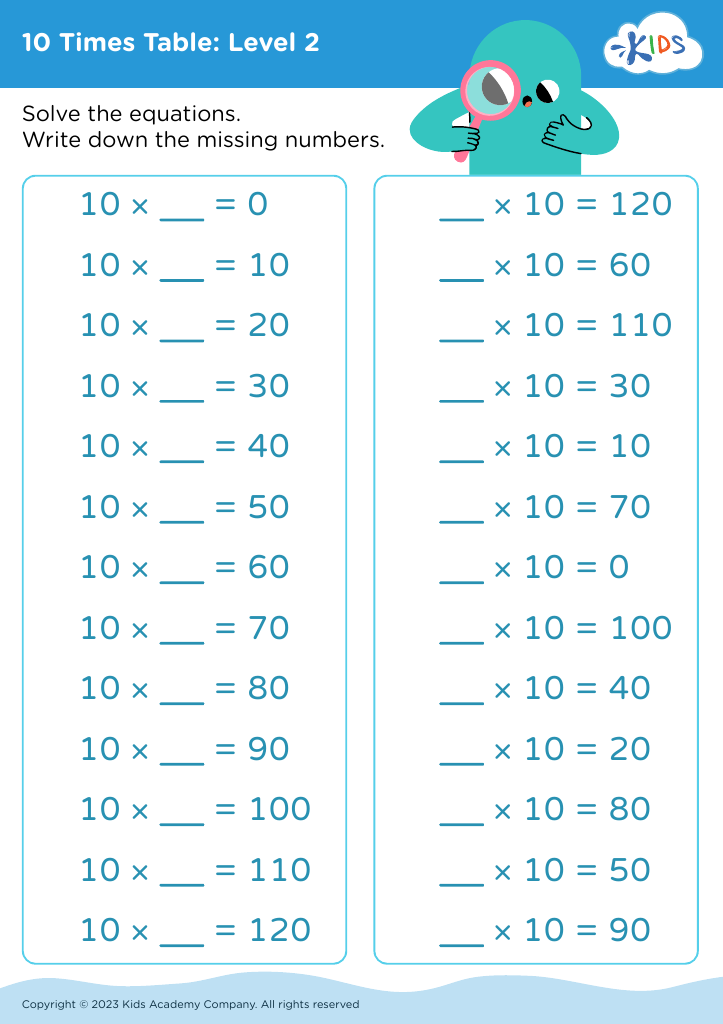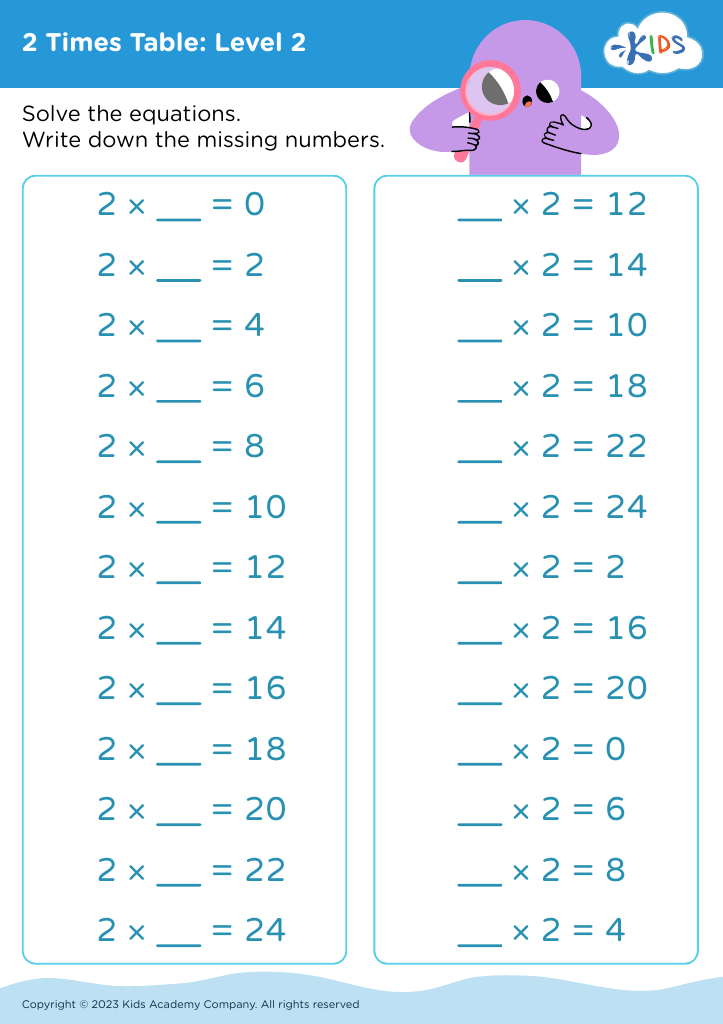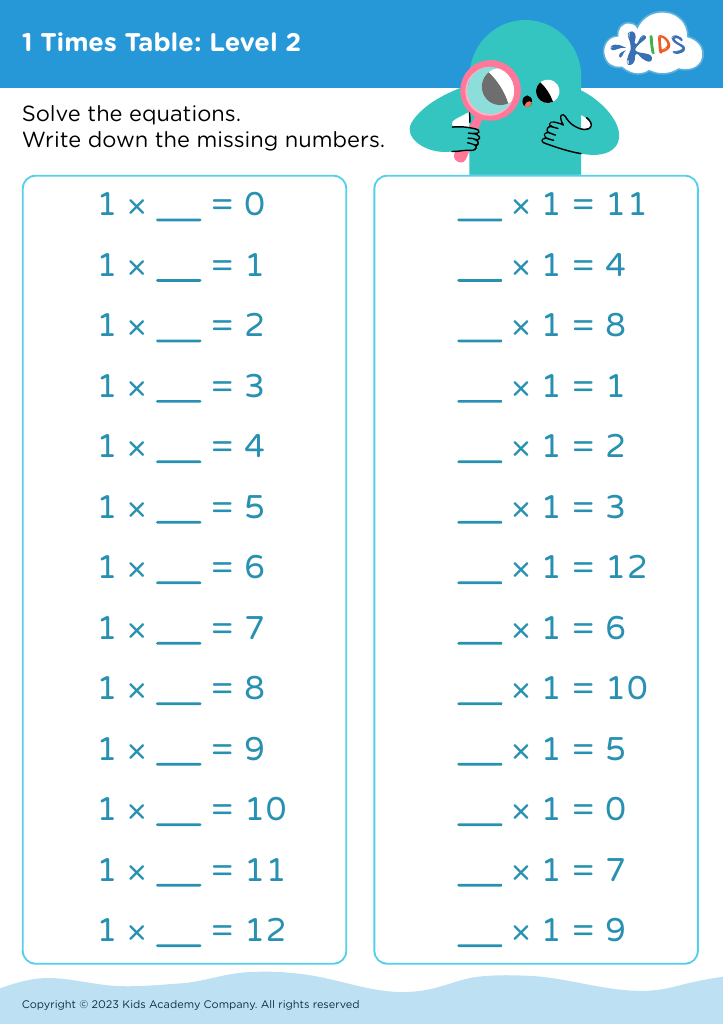Understanding times tables Normal Worksheets for Ages 8-9
3 filtered results
-
From - To
Unlock the power of multiplication with our "Understanding Times Tables: Normal Worksheets for Ages 8-9". Designed specifically for young learners, these engaging and educational worksheets help students master the essential skill of times tables. Each worksheet offers structured activities that encourage critical thinking and repetition, ensuring a solid foundation in math. Ideal for both classroom and at-home learning, our worksheets make it easy for children to build confidence in their math skills. Dive into our effective resources and watch your child excel at multiplication effortlessly. Start your journey to better math comprehension with Kids Academy today
Parents and teachers play a critical role in a child's learning journey, and understanding times tables is a cornerstone of mathematical development for children ages 8-9. At this age, students are usually in the third or fourth grade, a period when foundational arithmetic skills are solidified. Times tables, or multiplication tables, serve as the building blocks for higher-level math concepts, including division, fractions, and problem-solving.
Mastering times tables enhances numerical fluency, allowing children to solve math problems more quickly and with greater confidence. It builds a sense of accomplishment and encourages a positive outlook on mathematics as a subject, reducing anxiety and promoting a growth mindset. Furthermore, this foundational understanding aids in day-to-day activities, such as telling time, managing money, and understanding measurements, which are essential life skills.
By focusing on times tables, parents and teachers help lay a strong mathematical foundation, enabling children to handle more complex calculations with ease as they progress in their education. Encouraging practice through games, quizzes, and real-life applications can make learning these tables fun and engaging, fostering a lifelong love of learning and mathematics. This early investment in math fluency is crucial for academic success and overall cognitive development.























